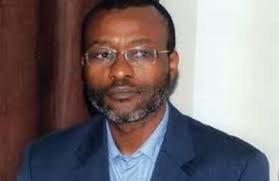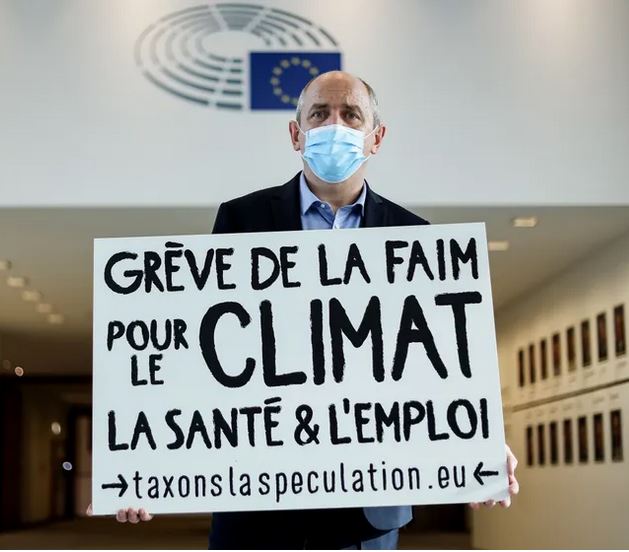 I was born and grew up in Cameroun, a country of 22 million inhabitants, located in West Africa, which became “independent” (if at all this word means anything in Africa) in 1960 after a colonial history involving the Germans, the English and the French. Since 1960, Cameroon has had only two heads of state: the first ruled from 1967 until his sudden resignation in 1982. The second, his then prime minister, took over in 1982 and is still in power at 85 years old and there are indications that he wants to seek another term. During these 58 years of political independence, there have been many elections but only God knows whether any of these has ever been democratic. In other words, in my 48 years of existence, I have known only two heads of state. The sad truth is that after many years of poor governance, Cameroon in now confronted with a quasi-civil war, which is basically a crisis of social justice. It is from this context, which of course, is not representative of the whole African continent, that I am speaking about political crisis in Sub-Saharan Africa.
I was born and grew up in Cameroun, a country of 22 million inhabitants, located in West Africa, which became “independent” (if at all this word means anything in Africa) in 1960 after a colonial history involving the Germans, the English and the French. Since 1960, Cameroon has had only two heads of state: the first ruled from 1967 until his sudden resignation in 1982. The second, his then prime minister, took over in 1982 and is still in power at 85 years old and there are indications that he wants to seek another term. During these 58 years of political independence, there have been many elections but only God knows whether any of these has ever been democratic. In other words, in my 48 years of existence, I have known only two heads of state. The sad truth is that after many years of poor governance, Cameroon in now confronted with a quasi-civil war, which is basically a crisis of social justice. It is from this context, which of course, is not representative of the whole African continent, that I am speaking about political crisis in Sub-Saharan Africa.
In terms of good governance, the 2007 Mo Ibrahim index estimates shows that the average for the whole continent is 50, 8 /100: Obviously and fortunately some African countries, though not many, are doing far better than others. Countries such as Mauritius, Seychelles, Botswana and Capo Verde are doing quite well with an average of over 70/100. But most are still lagging behind. Since the 1990s progress towards a more democratic culture is steady but very slow. Dismantling monolithic political structures and mindsets has proven to be a very difficult task which requires a lot of patience and resilience from organizations and people committed to working for change. Most political crisis in Africa are often related to competition for power and for the control the economic resources coveted by foreign companies.
Oftentimes, the economic interests of multinational firms are the deciding factor. African countries rich in mineral resources tend to be plagued by political crisis and civil wars which work for the selfish interests of corrupt government and their foreign corporate accomplices. It is in this context that I have been asking myself questions such as: what does social ethics means for me and my people? What is the relevance of Catholic Social Teaching in the face of such challenges? How does one translate social justice theories into practice in such a context? How much of the related responsibility is individual and how much of it is collective?
My first contact with Catholic Social Teaching occurred in the early 1990s when I began training for priesthood. It was mainly an introduction to papal encyclicals since Rerum Novarum and to Gaudium et Spes. But it was all about theoretical principles. Nothing about how to translate these into practice in a parish or a Christian organization. In those years, Africa was beginning its transition from autocratic regimes to a more pluralistic political culture. Those were years of economic and political crisis all over the continent. Structural Adjustment Programs prescribed by the Bretton Woods institutions supposedly to help the Continent recover economically only made things worse for the poor. In such a context, hermeneutical principles such as the “preferential option for the poor” began make sense to me.
But the turning point for me was when I joined the Society of Jesus in 1992 and was introduce in the Novitiate to Decree 4 of the 32nd General Congregation of the Jesuits which had taken place in Rome in 1974. This decree redefined the mission of the Society of Jesus in the world in terms the service of Faith and the promotion of Justice. I was definitely fascinated by this way of linking faith with issues of justice and since then I have been asking myself what that means and imply concretely in the public sphere and in the particular context of political crisis and economic injustices in Africa. How does that translate into practice as Jesuits, as a Church? Individually and collectively?
These questions have shaped both my intellectual and spiritual journey in the Society of Jesus until today. I have developed academic interests in political philosophy, in social ethics, and in social sciences. For example, for my master’s thesis in theology, I attempted a comparative study of the basic principles of Catholic Social Teaching and the Capability Approach of Amartya Sen in an effort to explore one of the ways of translating Catholic Social Teaching into a policy scheme. Then I went on to do a doctorate in social and cultural anthropology as I was looking for better tools for the social and political analysis of African societies.
After completing my doctorate, I was asked to join the Jesuit team at the Faculty of Social Sciences and Management at the Catholic University of Central Africa in Yaoundé, in Cameroon, my home country. Faced with the challenges of the context sketched earlier, my main concern was the role of the Jesuit intellectual in the public sphere. I decided that I had to do more than just confine myself to university duties of teaching and researching. I came to the conclusion that my vocation as a Jesuit and a university lecturer required from me not only to pay attention to what was going on in the country but to speak out on structural justice issues arising both in society and in the Church. After more than a decades of a few challenging experiment in this field, my feeling is that the Church has not fully grasped the pastoral implications of John Paul II’s concepts of “social structures of sin” or “social sin” which are at the root of most political crisis in the world in general and in Africa in particular. The Church is more comfortable with addressing the effects of structural justice than tackling the root causes of injustices in the World. I have also come to realize that the ministry of confronting “social structures of injustice” is dangerous.
The difficulty is well captured in Africae Munus (AM), the postsynodal exhortation in which Pope Benedict fleshed out the public role of the Church in Africa following the second African Synod in Rome in 2009. The synod focused on reconciliation, justice and peace in African societies plagued by conflicts and injustices. Discerning the Church’s public role, Pope Benedict XVI wrote: “The task we have to set for ourselves is not an easy one, situated as it is somewhere between immediate engagement in politics – which lies outside the Church’s direct competence – and the potential for withdrawal or evasion present in a theological and spiritual speculation which could serve as an escape from concrete historical responsibility” (AM, 17).
About the unjust world order which is one of the root causes of political crisis in Africa, Pope Benedict writes: “Together with the Synod Fathers, I ask all the members of the Church to work and speak out in favour of an economy that cares for the poor and is resolutely opposed to an unjust order which, under the pretext of reducing poverty, has often helped to aggravate it. God has given Africa important natural resources. Given the chronic poverty of its people, who suffer the effects of exploitation and embezzlement of funds both locally and abroad, the opulence of certain groups shocks the human conscience. Organized for the creation of wealth in their homelands, and not infrequently with the complicity of those in power in Africa, these groups too often ensure their own prosperity at the expense of the well-being of the local population.” (AM 79)
The exhortation does not depart from the principles laid out in Gaudium et Spes more than five decades ago about the distinction and independence of the religious and political spheres, about the distribution of spheres between the clergy and laity. Indeed about the political responsibility of the laity, Gaudium et Spes reads: Secular duties and activities belong properly although not exclusively to laymen. Therefore acting as citizens in the world, whether individually or socially, they will keep the laws proper to each discipline, and labor to equip themselves with a genuine expertise in their various fields. They will gladly work with men seeking the same goals. Acknowledging the demands of faith and endowed with its force, they will unhesitatingly devise new enterprises, where they are appropriate, and put them into action. Laymen should also know that it is generally the function of their well-formed Christian conscience to see that the divine law is inscribed in the life of the earthly city; from priests they may look for spiritual light and nourishment. Let the layman not imagine that his pastors are always such experts, that to every problem which arises, however complicated, they can readily give him a concrete solution, or even that such is their mission. Rather, enlightened by Christian wisdom and giving close attention to the teaching authority of the Church, let the layman take on his own distinctive role (GS, §43, 2)
In other words, the clergy is to stay away from partisan politics and leave it to laymen to engage the messiness of secular activities. That said, there are exceptional situations where some African bishops have been called upon to play important roles of political mediation in order to negotiate peaceful transitions in their countries precisely because of their non-partisanship. On the other hand, the Church relies on the laity to translate Catholic Social Teaching into secular activities but in practice catholic laymen are invisible in the political landscape in Africa. They either stay away from political life or they tend to separate their spiritual life from their political commitment. This invisibility of the catholic laity in politics is, from my point of view, the main obstacle to the translation social ethics into political practice in Africa.



Leave A Comment
You must be logged in to post a comment.